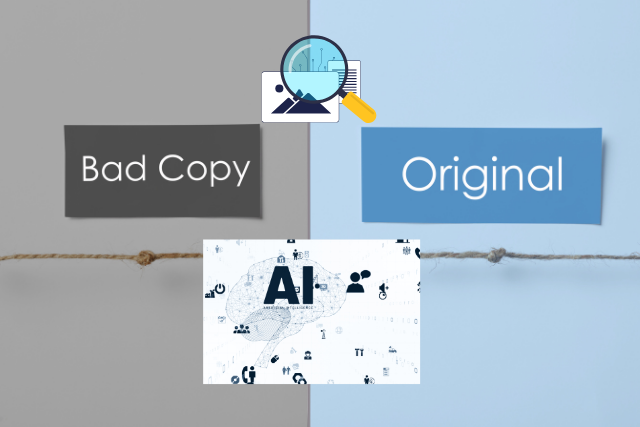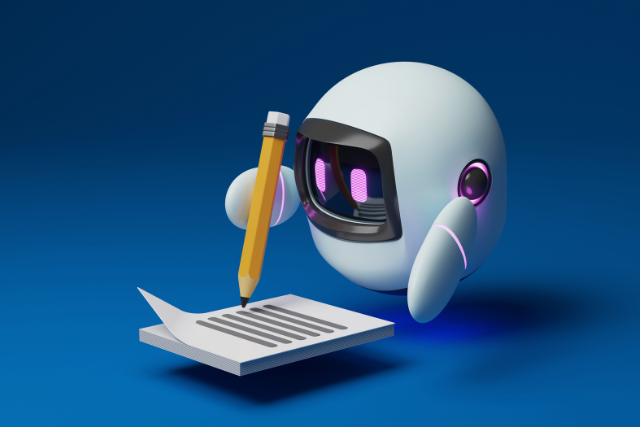AI writing uses computer algorithms to generate text that is difficult for humans to tell apart from writing produced by humans. AI writers are computer programs that can understand and write in human language. They can create original works of fiction or rewrite existing texts to make them better.
The History and Popularity of AI Writers
The idea of using computers to create written content is not new. The concept was first introduced in the 1950s when a program was designed to write short stories. It was not until the 1980s that the idea began to see success.
The first computer-created novel, written in 1984 by science fiction author Frederik Pohl, took three years to write. 1986, the computer-written novel “The Policeman’s Beard is Half Constructed” was published.
While AI writers cannot replace human writers completely, they can be a helpful tool for businesses or individuals who need to generate a lot of content quickly.
One example of AI writing is GPT-3, a machine-learning platform that can generate realistic-sounding text in various styles and genres. GPT-3 has been used to create everything from convincing fake news articles to poetry.
AI writing is still in its early stages and has limitations. For example, AI writers often lack creativity and can produce repetitive or formulaic text. However, as AI technology improves, AI writers will likely become increasingly capable of delivering high-quality texts. The use of AI writers in the publishing industry is controversial.
Publishers and authors have raised concerns that AI writers could dramatically reduce the demand for human writers, leading to widespread unemployment in the publishing industry.
Some publishers are experimenting with using AI writers alongside human writers to write books.
The Benefits of AI Writing
In today’s business world, speed is essential. The faster you can get your message out, the better. That’s where AI writing comes in. With a computer doing the heavy lifting, you can churn out articles and blog posts at lightning speed.
But that’s not the only benefit of using AI to write your content. When you let a machine do the work, you can be sure it will be free of grammar and spelling errors. Because AI writing is based on algorithms, it can help you stay on topic and focused on your key points.
So, AI writing is worth considering if you’re looking for a way to produce high-quality content quickly and efficiently. It could just be the boost your business needs to stay ahead of the competition.
Learn more about The Future of Generative AI: Transforming Creativity and Innovation
How Do AI Writers Work?
In a world where technology is constantly advancing, it’s no surprise that artificial intelligence (AI) is being used in more ways than ever. One such way is through AI writers.
AI writers are computer programs that are designed to write like humans. They can be used for various purposes, such as creating articles, generating marketing content, or even writing novels. While AI writers may not be able to replace human writers just yet, they can help to save time and effort.
The Future of AI Writing
In the future, AI writers can produce error-free writing at lightning speeds. They will also be able to handle more complex writing tasks, such as creating detailed reports or crafting compelling marketing copy.
At the same time, AI writers will become increasingly prevalent in the workforce, as they can do the work of several human writers at a fraction of the cost. Businesses will be eager to adopt this technology to save money and increase efficiency.
Learn more about AI and Copyright: Who Owns AI-Generated Content?
Conclusion: The Pros and Cons of AI Writing
AI writing is a revolutionary tool with both benefits and challenges. On the positive side, it can enhance productivity, ensure error-free content, and help maintain focus on critical topics.
AI writers offer significant assistance to those struggling with grammar and spelling. They also help organize thoughts and streamline the writing process, saving time and effort.
However, there are legitimate concerns regarding the potential job displacement of traditional writers and the ethical implications of AI-generated content.
The debate continues as technology evolves, and the balance between human creativity and machine efficiency will be crucial.
AI writing presents a unique blend of opportunities and challenges. Embracing this technology can lead to significant advancements in content creation, but it must be done thoughtfully to preserve the essence of human creativity and ensure ethical use.
FAQs About AI Writing
1. What is AI writing?
AI writing involves using computer algorithms to generate text that mimics human writing. These algorithms are designed to understand and write in human language, creating original content or improving existing texts.
2. Can AI writers replace human writers?
While AI writers can generate content quickly and efficiently, they lack the creativity and nuanced understanding that human writers possess. Therefore, they are more of a tool to aid human writers rather than replace them entirely.
3. How do AI writers generate content?
AI writers use machine learning algorithms, like GPT-3, to analyze and generate text. These algorithms learn from vast data to produce realistic and contextually appropriate content.
4. Are there any limitations to AI writing?
Yes, AI writing has limitations, such as a lack of creativity and the tendency to produce repetitive or formulaic text. As technology advances, these limitations are expected to diminish.
5. What are the benefits of using AI writing?
AI writing offers several benefits, including faster content creation, error-free writing, and staying on topic. It can help businesses and individuals produce high-quality content efficiently.
6. Is AI writing ethical?
The ethics of AI writing are debated. While it can aid content creation, there are concerns about job displacement for human writers and the potential misuse of AI-generated content for misinformation.







